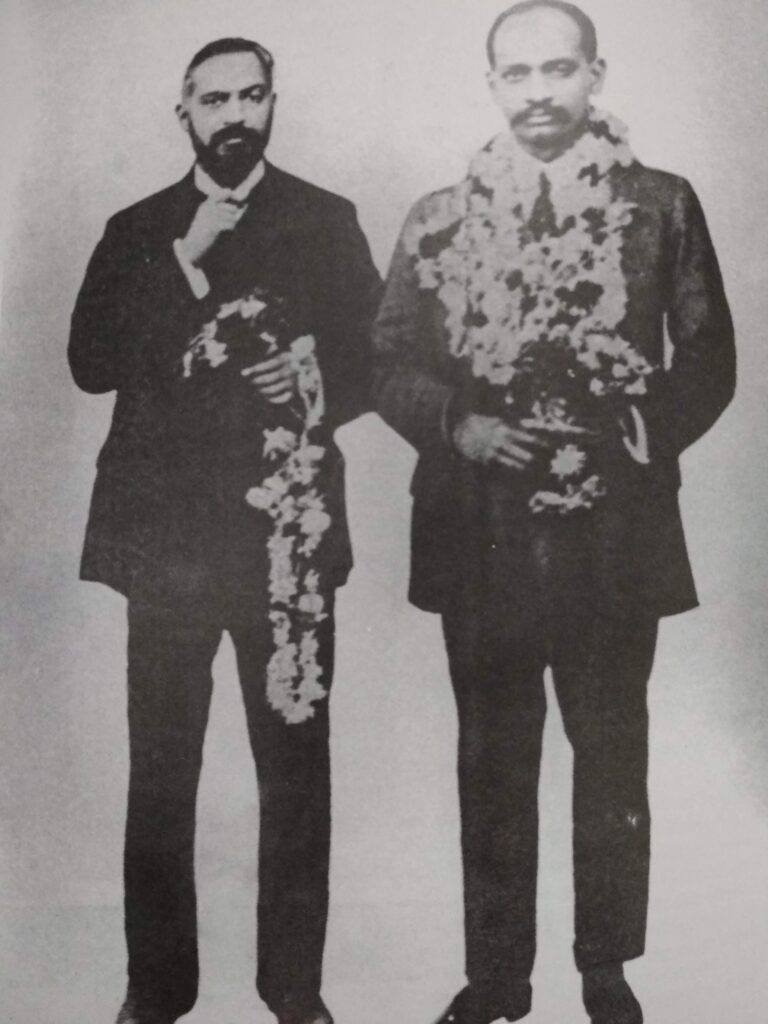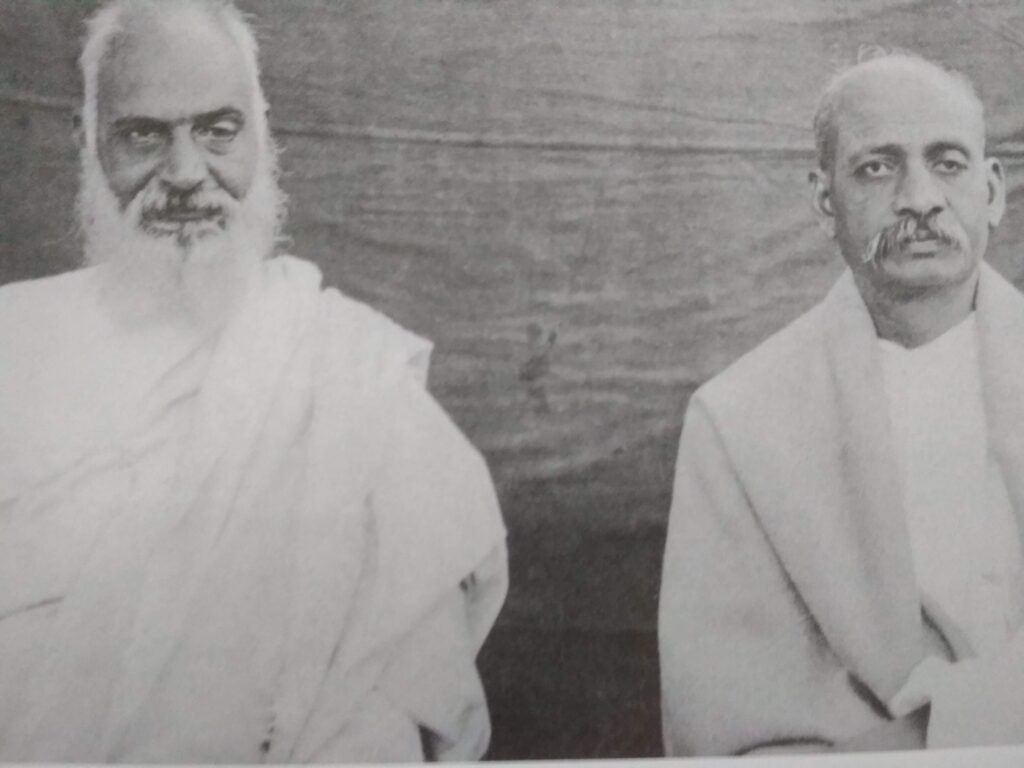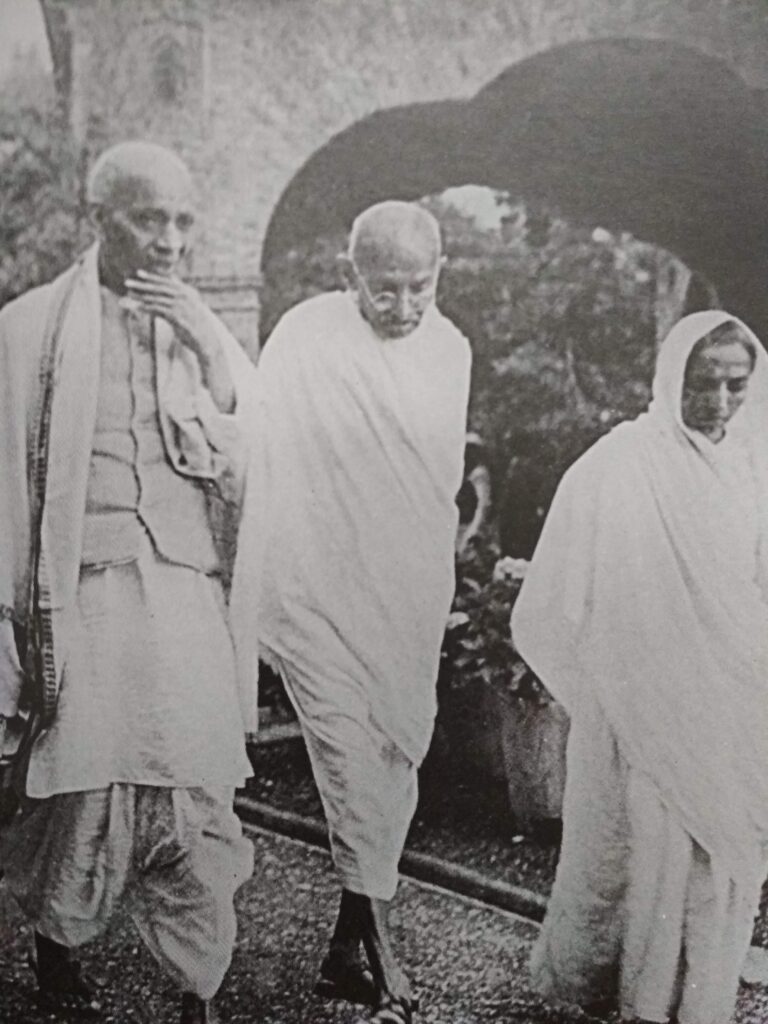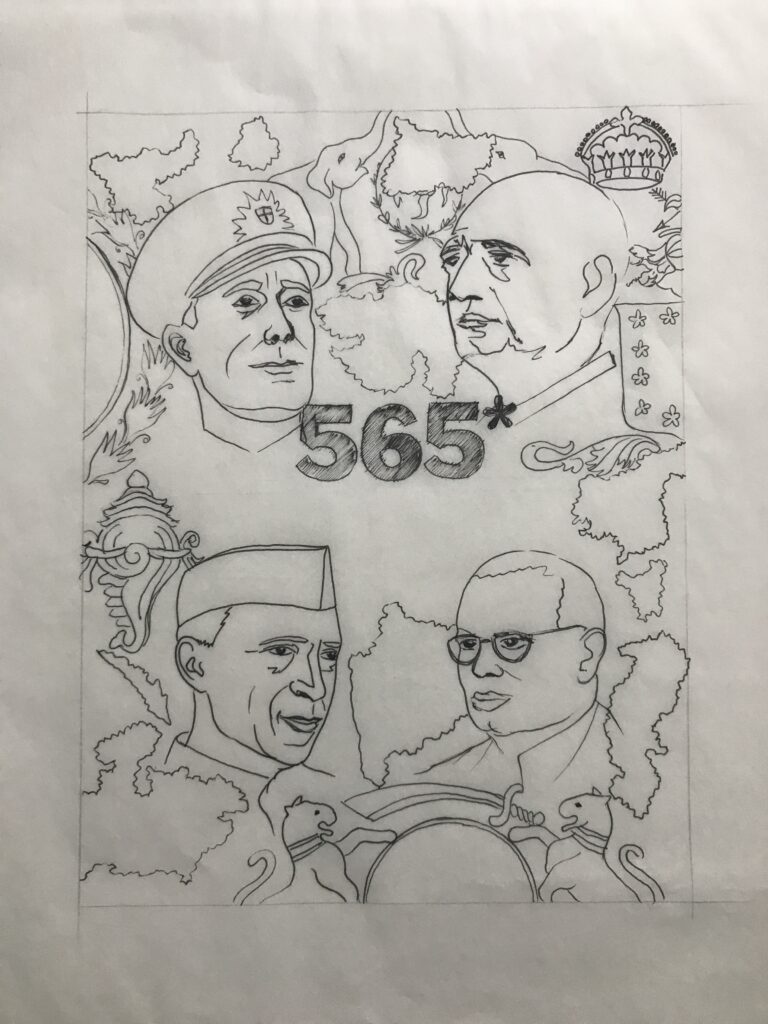Cloistered and imprisoned in our homes, as we have all been for the past few months, I was reminded of an interesting episode of history. Of a time when two tall Indian leaders showed exemplary courage and resilience in the face of a long prison sentence. A story worth recounting in light of recent events.
The idea to write this post was also born out of utter dismay at political events in the country. Leaders whose focus ought to be fighting the crisis at hand, are instead fighting their own personal and political battles. To children who are watching and learning, I thought, one ought to speak also about more laudable examples of endurance and resilience. So let’s cut back to another time.
The Sardar will not bend
The story takes us to 1932-33. This is a time when Sardar Vallabhbhai Patel is imprisoned in Nasik Jail after the launch of the Civil Disobedience Movement.
While in prison, Patel suffers from severe nosebleeds and is in need of urgent surgery.
Life in Nasik Jail was aggravating. A wall separating Patel’s ward from the rest of the prison was raised by three feet. “We won’t lose heart no matter what is done,’ he told the superintendent. “Put us in a small dark cell if you want.’ Vallabhbhai was not allowed the newspapers he wanted. For a while, a convict was his only cellmate. Later he had no companion at all. His nose gave him sleepless nights; sometimes he had to sit up for hours until the attack of pain subsided.
Patel, a Life,
Rajmohan Gandhi
(pp 234)
Gandhi writes a letter to the Home Department asking for help. ‘The discharge is getting worse. His eyes are blood red. He eats nothing the whole day.’
But Patel’s battle with ill health was not the only one he would have to fight while in prison. He soon receives news of his mother’s death. Then of the tragic demise of his daughter-in-law. In the face of all this, he remains characteristically stoic, refusing to apply to the British for help.
And then he receives the devastating news that his older brother Vithalbhai Patel has died in Geneva. At the end of his life, Vithalbhai had been attended to by Subhash Chandra Bose. A long spat would ensue later between the two leaders over the will of Vithalbhai, souring relations between Bose and Patel – but that is another story. For the time being, the body was being sent back to India and Bose writes to Gandhi asking Patel to be freed for some time to attend to the last rites of his elder brother.

(Image from Patel, A Life by Rajmohan Gandhi)
With an eye on gaining public support, the British Government offered to allow Patel to attend the cremation subject to certain conditions. He would have to undertake not to make any political comment during his period of parole and to surrender as soon as the rituals were completed.
Patel replied in a manner characteristic of him…
‘To ask for coming out from the present stage is neither graceful to me nor to the nation. It does not speak well of a satyagrahi to pressurize the govt, improperly taking advantage of such an occasion.’
Vallabhbhai Patel

(Image from Patel, A Life by Rajmohan Gandhi)
Gandhi concurred saying that seeking such a favour from the Raj would not be proper.
Patel bolstered those views ‘I cannot purchase my liberty at the sacrifice of my honour and self-respect even on an occasion when my presence outside is highly necessary.’
The last rites of Vithalbhai were then conducted by Sardar’s son Dayabhai.
Later, when his own son Dayabhai was ill with typhoid, he would use the same principle, refusing to let his daughter Mani apply for parole to take care of her brother.

(Image from Patel, A Life by Rajmohan Gandhi)
Azad weeps alone
Mirroring this commitment and nationalistic pride was Maulana Azad, another senior leader of the Congress, who also spent several terms in prison. During these long years, his wife would spend her time alone and in poor health. The couple did not have children. The prison sentence in such circumstances added greatly to the anguish. Speaking of his imprisonment after the launch of the Quit India movement launched in 1942, and the condition of his wife, Azad says..
“The news of my arrest and that of all my colleagues on 9 August must have come as a great shock to her and her health, which was already frail, took a turn for the worse. One of my greatest worries during imprisonment was the reports of her deteriorating health. Early in 1944, I received news from home that she was again seriously ill. Later came more alarming news. Her physicians were worried about her and on their own initiative wrote to the Government that I should be allowed to see her once as there was little hope for her survival. The Government ignored this letter from the physicians.”
India Wins Freedom
Maulana Abul Kalam Azad
A few days later, Azad received a telegram that his wife was dead. He could not see her in her last days, nor could he go for her funeral.
Three months later, he received another blow. His sister had left him too. Azad would weep and mourn, just like Patel had, not in the warmth of the company of friends and family, but in a cold prison cell all alone.
Our freedom fighters – the ones we know and the many we don’t – lived through many agonizing days and months and years of imprisonment. When anyone asks me why I vote in the elections when nothing changes and when we know that every candidate of every party is corrupt and unworthy – my answer goes back to stories of such sacrifice. Many have made great sacrifices for my freedom. For giving me the chance to live, not under foreign rule but by selecting a government of my choice. That is my greatest motivation to vote. And I believe reminding our children of these sacrifices would make them more responsible citizens too.
Patel and Azad had many differences, especially towards the last few days of British rule, particularly with Azad’s vehement opposition to Partition and Patel being one of the first Congressmen to acquiesce to the division of India. But for the purposes of this post, Azad’s resilience meets with Patel’s.
In other words, when there was a greater cause to be upheld, a greater battle to wage, personal problems were not to get in the way. A lesson unfortunately lost on the modern generation of leaders, even those from the very same party.
In these covid times, as we find ourselves imprisoned (in some sense), let us take a moment to remember the sacrifices of those like Sardar and Azad, and resolve to keep those dark days they spent in prison in our mind when a big decision beckons.
565 is my book, to be published by Hachette, with more about Sardar and the incredible task he pulled off in 1947. For Book Release and other details, sign up to the site to stay posted .

Ramanjit Garewal
August 30, 2020 - 9:05 am ·*?…Jai Shree Ram…?*
Dear Mallika…?
Very well written…?
Cathartic reminders…?
Those were the days…
Of stalwarts…
These are the days…
Of stall warts…
Tumhara das…?
Hugs…
Love…
?
*?…Jai Shree Ram…?*
mallikaravikumar
August 30, 2020 - 10:01 am ·Thank you Ramanjiti.
Carl Dantas
August 30, 2020 - 1:26 pm ·Hey Mallika,
Great story, it was enlightening & enriching.
KUDOS?
mallikaravikumar
September 5, 2020 - 8:02 pm ·Thank you 🙂
mallikaravikumar
October 1, 2020 - 11:28 pm ·Thank you so much 🙂
Pankaj Gupta
September 4, 2020 - 1:13 pm ·Great Read !
mallikaravikumar
September 5, 2020 - 8:03 pm ·Thank you Pankaj for being a regular reader and for your encouraging comments 🙂
mallikaravikumar
October 1, 2020 - 11:29 pm ·Thanks for the appreciation as always, Pankaj.